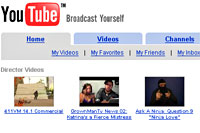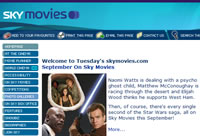 docs.google.com is the new destination for Google’s Web-based Writely word processor and their companion spreadsheet.
docs.google.com is the new destination for Google’s Web-based Writely word processor and their companion spreadsheet.
Given both of the apps are Web-based, anyone with a Web browser can use these apps, no matter where they are. It’s not surprising that Google also offers extensive searching within the documents that are created.
Just how long the Writely name will survive, now it’s being referred to as Google Docs?
Google bought Writely back in March and got to work with bringing it into Google-dom.
Back in June, Google let it be known that they’d matched Writely with a spreadsheet, causing waves of discussion as to them treading on Microsoft’s toes.
One of the nifty features is the ability to collaborate with other people in your Google address book and choose to share the documents in an area created with anyone on the Web. Once created, the authors can attach tags to the content to locate them again.
This is great for Google, not just because they are knocking one on the chin for Microsoft, but because they’re giving people tools to generate content … for them to search on Google. Pretty cyclical init.
 In true online video blog style, the announcement was made by Mr Diddy (not one of
In true online video blog style, the announcement was made by Mr Diddy (not one of  Details of the deal between Mr Diddy and Burger King haven’t been disclosed, but we’d imagine that it’s going to be worth more that a couple of orders at their stores, even if his entourage are ordering large.
Details of the deal between Mr Diddy and Burger King haven’t been disclosed, but we’d imagine that it’s going to be worth more that a couple of orders at their stores, even if his entourage are ordering large. We attribute much of Mr Diddy’s knowledge and acceptance of YouTube down to
We attribute much of Mr Diddy’s knowledge and acceptance of YouTube down to  In a sure sign that TV content on the Web is going to be as important as TV content on the TV, AOL has signed up everyone’s (in certain parts of the UK at least) favourite ‘geezer’ cook Jamie Oliver.
In a sure sign that TV content on the Web is going to be as important as TV content on the TV, AOL has signed up everyone’s (in certain parts of the UK at least) favourite ‘geezer’ cook Jamie Oliver. But it’s a ‘win win’ scenario for Oliver and AOL, Oliver will be able to plug his latest book and AOL are expecting non-subscribers to sign up for their free Webmail accounts.
But it’s a ‘win win’ scenario for Oliver and AOL, Oliver will be able to plug his latest book and AOL are expecting non-subscribers to sign up for their free Webmail accounts. So, there I was at the first ever PICNIC – a cross media conference taking place in Amsterdam last week…
So, there I was at the first ever PICNIC – a cross media conference taking place in Amsterdam last week… In a break, Marc and I talked around my (
In a break, Marc and I talked around my ( The BBC has signed a Memorandum of Understanding with Microsoft. Areas of the potential investigation and collaboration that the non-exclusive agreement includes, covers “search and navigation, distribution, and content enablement” (what ever that means in English).
The BBC has signed a Memorandum of Understanding with Microsoft. Areas of the potential investigation and collaboration that the non-exclusive agreement includes, covers “search and navigation, distribution, and content enablement” (what ever that means in English). Microsoft has been creeping into the BBC’s online media for a long time now. It first came to light when we broke the story near the start of 2004 that the
Microsoft has been creeping into the BBC’s online media for a long time now. It first came to light when we broke the story near the start of 2004 that the  The UK’s broadcasting and telecommunications regulator OFCOM last week made clear its opposition to potential EU regulation. It fears it will straight-jacket the emerging new wave industries aiming to propel high tech growth in the EU zone over the coming years.
The UK’s broadcasting and telecommunications regulator OFCOM last week made clear its opposition to potential EU regulation. It fears it will straight-jacket the emerging new wave industries aiming to propel high tech growth in the EU zone over the coming years. The study also makes clear its’ worries that excessive regulation could mean that countries outside of the EU would benefit from the expected growth in non traditional delivery of multimedia content, before it has established itself in Europe.
The study also makes clear its’ worries that excessive regulation could mean that countries outside of the EU would benefit from the expected growth in non traditional delivery of multimedia content, before it has established itself in Europe. U.S. Internet advertising revenue has hit a new record high of nearly $8 billion for first six months of the year, increasing by a money-spinning 37 per cent, according to a new study.
U.S. Internet advertising revenue has hit a new record high of nearly $8 billion for first six months of the year, increasing by a money-spinning 37 per cent, according to a new study. The IAB/ PricewaterhouseCoopers figures show that Internet advertising revenue totalled nearly $4.1 billion in the last quarter, representing a thumping a 36 percent increase over the same period last year, and up a healthy 5.5 percent over the first quarter of 2006.
The IAB/ PricewaterhouseCoopers figures show that Internet advertising revenue totalled nearly $4.1 billion in the last quarter, representing a thumping a 36 percent increase over the same period last year, and up a healthy 5.5 percent over the first quarter of 2006. Microsoft is looking to shove its king sized oar into the massive successful user-generated video phenomenon with the launch of an online service to take on the likes of YouTube, Google and Yahoo.
Microsoft is looking to shove its king sized oar into the massive successful user-generated video phenomenon with the launch of an online service to take on the likes of YouTube, Google and Yahoo. With Microsoft’s vast reserves of cash to fall back on, it’s not surprising that Bennett is chirpy about their prospects, “It’s really early days in online video; this is still act one.”
With Microsoft’s vast reserves of cash to fall back on, it’s not surprising that Bennett is chirpy about their prospects, “It’s really early days in online video; this is still act one.” YouTube is continuing to get attention for the content it has on it. Not this time for alleged copyright violations, but for a young girl who has been appearing in videos about the trial and tribulations of her life. Her moniker?
YouTube is continuing to get attention for the content it has on it. Not this time for alleged copyright violations, but for a young girl who has been appearing in videos about the trial and tribulations of her life. Her moniker?  What raised our suspicions? It had always been shot on a video camera, high above a standard Web cam and edited in a self-consciously amateur fashion. The subjects she spoke about appeared just too ideal for the majority-male YouTube – geeky with relationship questions. Of course she was also very attractive. It was also strange that the music that was used in the tracks was always fully credited. We wondered if Bree was eventually going to start talking about products.
What raised our suspicions? It had always been shot on a video camera, high above a standard Web cam and edited in a self-consciously amateur fashion. The subjects she spoke about appeared just too ideal for the majority-male YouTube – geeky with relationship questions. Of course she was also very attractive. It was also strange that the music that was used in the tracks was always fully credited. We wondered if Bree was eventually going to start talking about products. It appears that some people who it also didn’t quite ring true for,
It appears that some people who it also didn’t quite ring true for,  Sky has hit the pause button on delivering films (known by some as movies) and sport via their Sky By Broadband service, due to cracks in Microsoft’s Windows Media DRM software.
Sky has hit the pause button on delivering films (known by some as movies) and sport via their Sky By Broadband service, due to cracks in Microsoft’s Windows Media DRM software. Background
Background